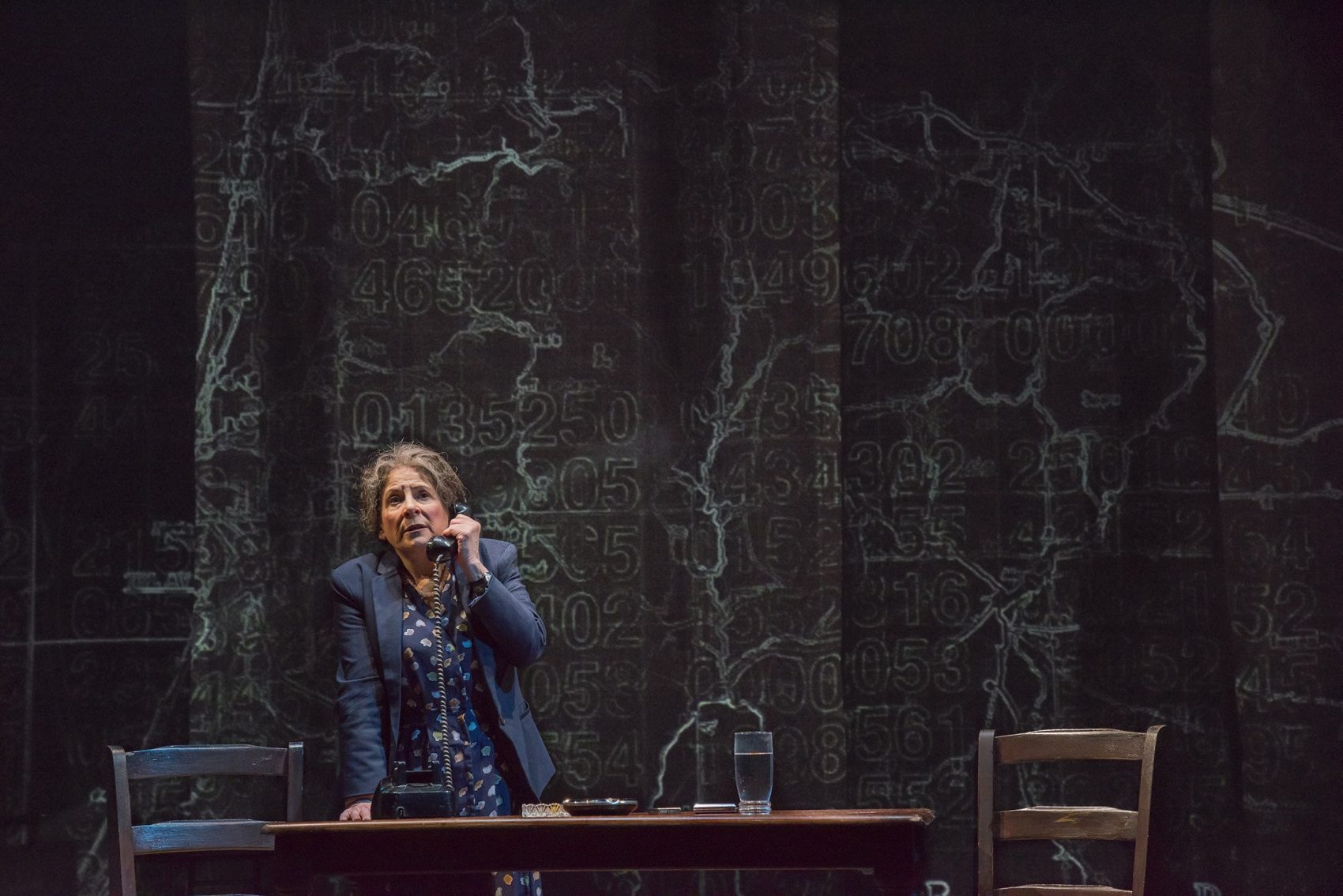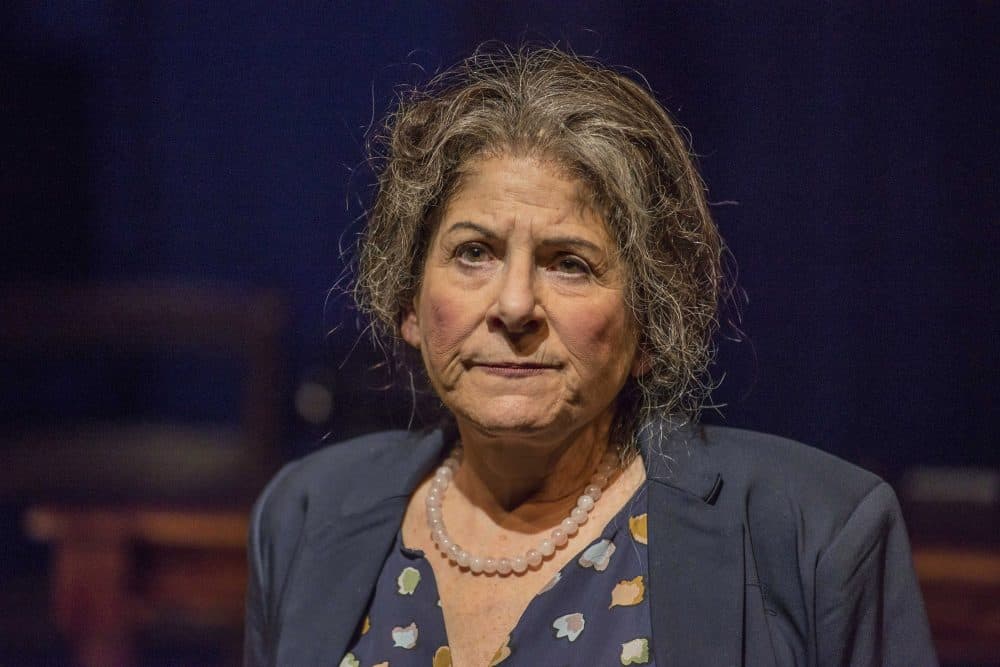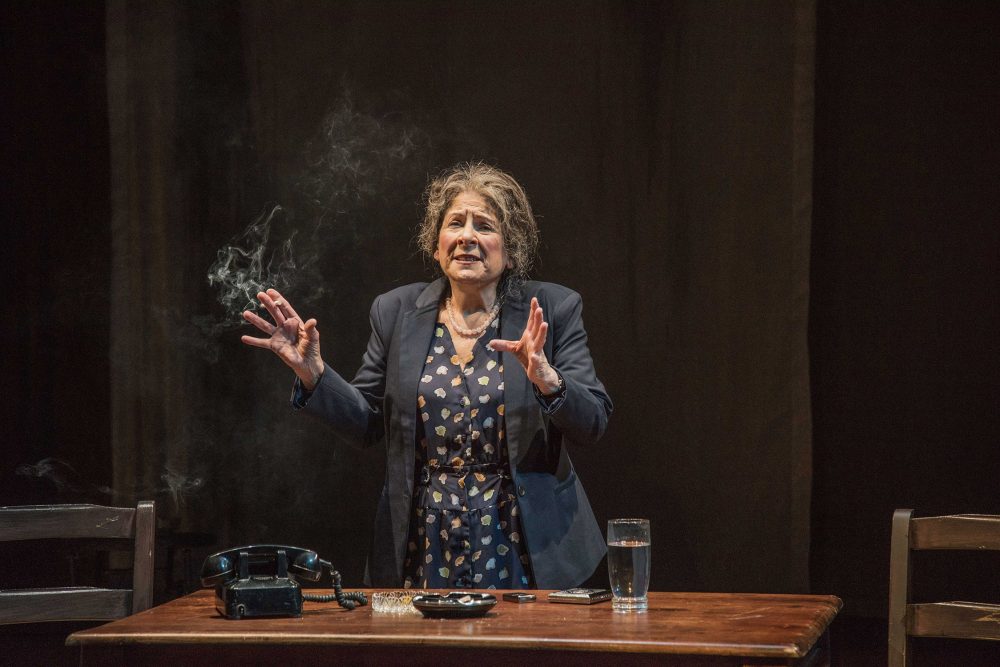Advertisement
Review
View From 'Golda's Balcony,' At New Rep, Shows Triumphs Of A Woman In Power And Israeli Independence

When New Repertory Theatre put “Golda’s Balcony,” William Gibson’s one-hander about Israeli Prime Minister Golda Meir, on its season schedule, the idea was that the show would run a couple months into the term of the United States’ first female president. Yeah, no.
Instead, Bobbie Steinbach’s performance in the role serves as a counterpoint to the actual news of the day; almost an escapist vision as much as a portrait of one woman’s negotiation of the male-dominated corridors of power. It’s a convincing performance and a satisfying production, onstage at New Rep through April 16.
Gibson’s play was a hit on Broadway in 2003-'04, adapted into a film a few years later and remains a reliable chestnut of regional repertory. It can be pulled off by an actor and a stool — though at New Rep, director Judy Braha indeed puts more theatrical tools to use — and its subject matter seems to remain timely, for better and worse.

Meir was born in Kiev, moved as a child with her family to the United States, became a passionate Zionist and moved to Palestine to join a kibbutz at age 23, in 1921. She became a prolific fundraiser for the Israeli independence movement, helped resettle survivors of the Holocaust and had an active political career that crested with her election as Israel’s first (and, to date, only) female prime minister in 1969.
“Golda’s Balcony” is a memory play that straddles different time periods, sometimes three at a time. Meir, seen first in a bathrobe as she smokes the first of several cigarettes, brings us into the room on Yom Kippur of 1973 as she receives word of a surprise attack by Egyptian and Syrian forces on territory that Israel had occupied since the Six-Day War of 1967. The 1973 conflict frames the one act, with Meir frequently digressing into stories about her youth in Milwaukee and the 1948 declaration of the existence of the state of Israel.
Steinbach, a longtime favorite of local stages who was delightful earlier this season at New Rep in the role of the matchmaker in “Fiddler on the Roof,” is in full command of this role. Her Golda is a tough, no-nonsense type who projects determination sprinkled only occasionally with despair. (In a flattering anecdote, Meir relates a story in which someone else remarks that she has “psychosomatic health” because the call of duty trumps for her any physical ailments.) Slightly hunched over, Steinbach employs a light accent and speaks in discrete chunks of words. This prime minister is not given to smooth speech-making.
The behind-the-scenes depiction she offers about the struggle to create a Jewish state, sometimes voicing both ends of a conversation, are often riveting. So too a story about Meir’s visit to a Cyprus camp for Holocaust survivors seeking passage to Palestine. Steinbach communicates deep wells of emotion without ranging into melodrama.

Scenic designer JiYoung Han places a small desk on a sort of Venn diagram of gently raised platforms, beneath which lie a ring of assorted shoes. (This feature recalls, for me, the shoe room of the U.S. Holocaust Memorial Museum and its silent piles of Survivors’ footwear.) A series of tiered, fabric scrims display Seághan McKay’s projections, which often include maps of Israel. David Wilson’s sound design is chiefly functional, but deliberately unnerving at a moment in the final scene.
As for the play’s sometimes hazy politics, one senses that Gibson wanted to scatter enough breadcrumbs to allow someone of almost any political leaning to leave the theater satisfied that Meir was in agreement. Contemplating a devastating attack on Israel’s Arab neighbors, Meir empathetically wonders “How many worlds you are entitled to destroy” in order to protect “a world you create.” But elsewhere, she describes Israel’s enemies as foes who seem to murder out of spite. The ethics of Israel’s continuing occupation of Arab territory — illegal under international law — go unexamined.
In the play’s early going, Meir rues that she’s known for making chicken soup for Israeli soldiers but there is blood “at the bottom of the pot.” But we never really see that blood, or are forced to reconsider the affection we’re clearly meant to feel for the firecracker personality depicted onstage. She hints at the need for painful moral compromise, but seems to get through crises without an ethical blemish.
The view from "Golda's Balcony" may be incomplete, but it remains intriguing.
